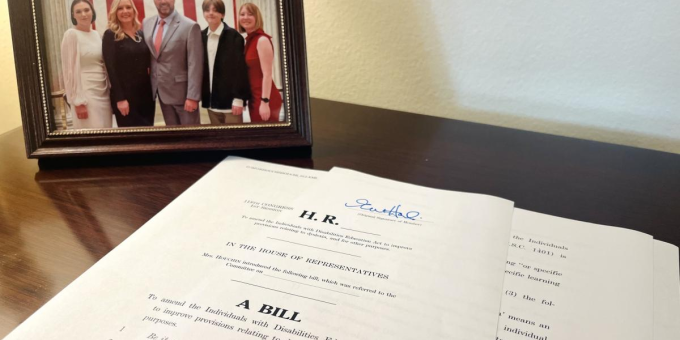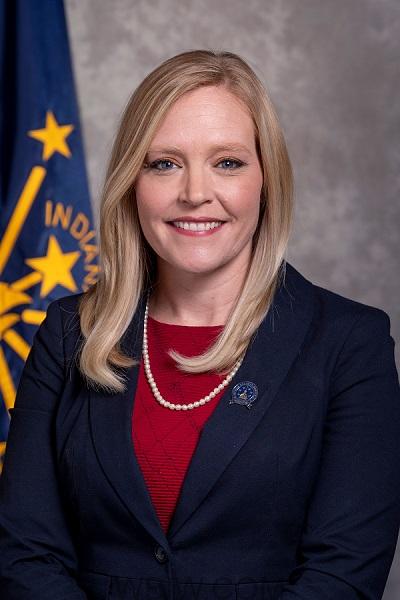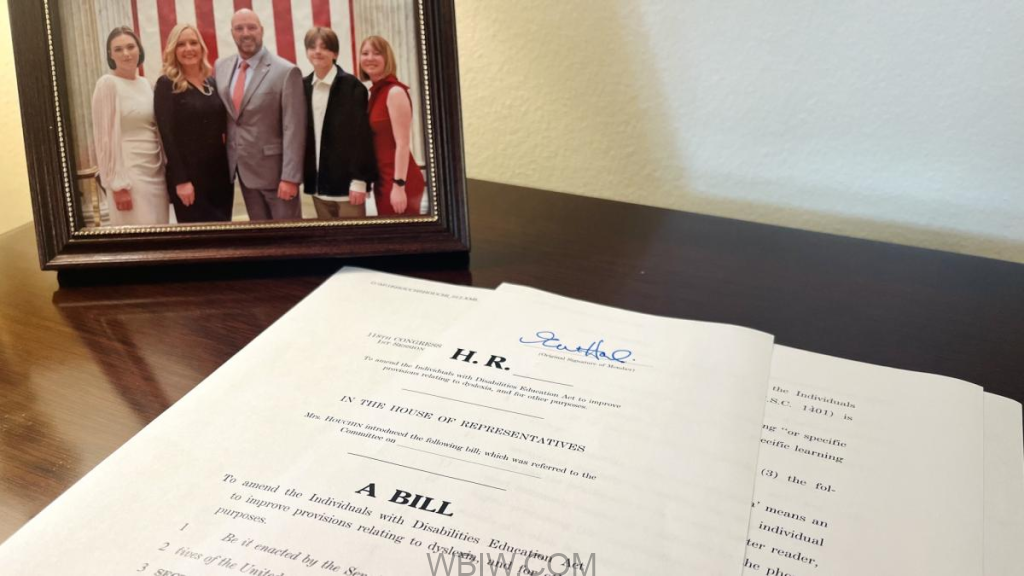
WASHINGTON – Today, Congresswoman Erin Houchin (R-Ind.-09), a member of the House Education and the Workforce Committee and the bipartisan House Dyslexia Caucus, released the following op-ed.

“As a lawmaker who happens to be a parent of a Dyslexic child, I find myself uniquely positioned to tackle this problem. I have worked on this issue in my own home, and both at the state and the federal level legislatively. I know this from a personal and a policy perspective,” said Congresswoman Houchin.
The op-ed follows last week’s introduction of the 21st Century Dyslexia Act to modernize Dyslexia identification to avoid the chance of the learning disability going unidentified in students.

Op-ed for Publication:
By: Congresswoman Erin Houchin (R-Ind.-09)
October is Learning Disabilities Awareness Month and Dyslexia Awareness Month. It is a time for both awareness and action.
As a parent of a son with Dyslexia, I understand the difficulties many children face. When my son began to struggle in school, our family felt frustrated and confused. Like many parents to children with learning disabilities, we navigated the complex network of specialists and started to do our own research. Teachers and educators, while well-intentioned, were also overwhelmed by what our son was experiencing. Understanding and action are far too difficult to come by.
Such difficulties have serious consequences. Falling behind in reading can affect students in the long term. Dyslexic students are more likely to face reduced graduation rates, lower income, and increased involvement in the criminal justice system. With as many as twenty percent of Americans suffering some degree of Dyslexia, this is a widespread, national problem. We have the potential, though, to mitigate these adverse results, reverse these troubling statistics, and bring positive change to people’s lives.
As a lawmaker who happens to be a parent of a Dyslexic child, I find myself uniquely positioned to tackle this problem. I have worked on this issue in my own home, and both at the state and the federal level legislatively. I know this from a personal and a policy perspective.
That is why I’m taking the initiative right now to contend for children with Dyslexia. We can do this in two ways, by raising awareness and by enacting legislation.
I proudly supported resolution H. Res 814 that recognizes October as “National Dyslexia Awareness Month.” This effort was in conjunction with other members of Congress engaged in confronting Dyslexia, including Representative Bruce Westerman (R-Ark.-04), who is the lead sponsor of the resolution in the House of Representatives. Awareness is a potent instrument that empowers educators and aids parents in their efforts to assist students.
Awareness is not enough, however. That is why I have also introduced legislation alongside another parent of a child with Dyslexia, Senator Bill Cassidy (R-La.), to offer important policy solutions. The 21st Century Dyslexia Act, which we introduced in a bicameral and bipartisan fashion, would modernize how we screen for Dyslexia by removing it from the overburdened “Specific Learning Disabilities” (SLD) section in the Individuals with Disabilities Education Act (IDEA). This legislation will also provide a definition of Dyslexia to better help educators and parents identify what Dyslexia is and how it manifests in different students. Adopting this change allows us to expedite the allocation of resources and essential support for students, preventing them from falling behind in the first place. While we are good at assisting diagnosed students, accelerating the process to reach that stage is paramount.
Literacy stands at the core of student success. It is central to how students begin to excel in other academic endeavors. Proficient early reading opens doors for our children to discover their God-given talents. We must contend for these students. I will persist in collaboration with advocates, parents, and partners nationwide to ensure that Dyslexia and other learning disabilities never hinder children from reaching their full potential. By raising awareness and making these policy changes, we can look forward to a brighter future for all American children.



